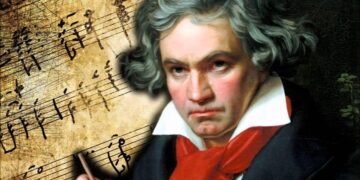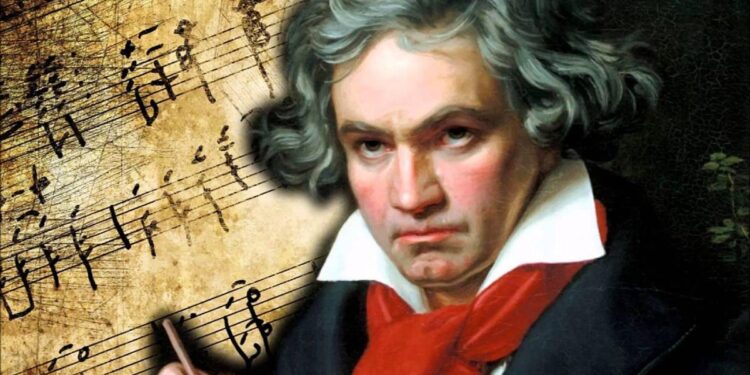Introduction: Why Beethoven Still Resonates Today
Beethoven is more than just a name in music history—he is a cultural icon. Ludwig van Beethoven, the German composer and pianist, changed the face of Western classical music through his innovative compositions and unshakable spirit. His influence spans centuries and continues to inspire musicians, composers, and audiences worldwide.
This article explores the life of Beethoven, the challenges he faced, his monumental musical achievements, and why his legacy still thrives in the 21st century.
Early Life and Musical Training
Ludwig van Beethoven was born in Bonn, Germany, in December 1770. His baptism on December 17 suggests he was likely born a day or two earlier. His family had a musical background—his grandfather was a respected musician, and his father, Johann van Beethoven, served as a court singer.
Beethoven showed musical talent at a very young age. Recognizing this, his father tried to mold him into a prodigy, similar to Mozart. Beethoven’s early training was strict and demanding, and he studied piano, violin, and composition. By his teenage years, he had already composed several small pieces and played professionally.
Quick Bio Box: Ludwig van Beethoven
| Full Name | Ludwig van Beethoven |
| Born | December 17, 1770 (baptized), Bonn, Germany |
| Died | March 26, 1827, Vienna, Austria |
| Nationality | German |
| Profession | Composer, Pianist |
| Famous Works | Symphony No. 5, Symphony No. 9, Moonlight Sonata |
| Musical Era | Transition from Classical to Romantic |
| Known For | Revolutionary symphonies and deafness |
Moving to Vienna: The Birth of a Musical Genius
In 1792, Beethoven moved to Vienna, the heart of European classical music. There, he studied under some of the great masters of the time, including Joseph Haydn and Antonio Salieri. Vienna gave Beethoven the perfect environment to develop his talents, perform his works, and interact with wealthy patrons.

Beethoven quickly earned a reputation as a virtuoso pianist and an original composer. His early works, influenced by the Classical style of Mozart and Haydn, already showed signs of the emotional intensity and structural innovation that would define his later music.
Beethoven’s Major Compositions and Style
Beethoven’s body of work is vast and varied, spanning every major musical genre of his time. His compositions include 9 symphonies, 32 piano sonatas, 16 string quartets, 5 piano concertos, an opera (Fidelio), and many chamber works.
1. The Nine Symphonies
Each of Beethoven’s symphonies pushed the boundaries of musical form and expression.
- Symphony No. 3 (Eroica): Marked a turning point in Beethoven’s style, originally dedicated to Napoleon.
- Symphony No. 5: Known for its iconic four-note opening motif.
- Symphony No. 9 (Choral): The first major symphony to include vocal soloists and a chorus, featuring the famous “Ode to Joy.”
2. Piano Sonatas
His piano sonatas, such as the Moonlight Sonata and Pathétique, showcased his lyrical and dramatic range. These pieces remain central to the piano repertoire.
3. Chamber Music and Concertos
Beethoven’s string quartets and piano concertos also demonstrated his skill in blending harmony, counterpoint, and emotional depth.
His style bridged the Classical and Romantic eras. Early works were elegant and structured, but his middle and late periods introduced more complex harmonies, innovative forms, and deep emotional content.
The Onset of Deafness: A Tragic Turn
Around the age of 28, Beethoven began to lose his hearing—a devastating development for a musician. By his mid-40s, he was almost completely deaf.
Despite this, Beethoven continued to compose some of his greatest works. His ability to “hear” music internally and work through sketches and memory was extraordinary. His late compositions—like the Missa Solemnis, the Hammerklavier Sonata, and the late string quartets—are considered masterpieces of profound depth.
His deafness did not silence his creativity; instead, it deepened the introspective and spiritual qualities of his music.
Beethoven’s Legacy: Influence and Impact
Beethoven revolutionized classical music in several ways:
- Expanded Forms: He lengthened symphonic and sonata forms and added emotional intensity.
- Emotional Depth: His music expressed human struggle, triumph, and introspection in unprecedented ways.
- Inspiration for Romantics: Later composers like Brahms, Wagner, and Mahler viewed Beethoven as a towering figure of inspiration.
- Universal Appeal: From concert halls to movie scores, his music continues to reach new generations.
The Ninth Symphony’s “Ode to Joy” was adopted as the anthem of the European Union, a testament to Beethoven’s universal and timeless appeal.
Personal Life and Struggles
Beethoven never married, though he had several romantic interests, including his mysterious “Immortal Beloved,” whose identity remains debated. His personal life was marked by loneliness, health issues, and family disputes, particularly involving his nephew Karl.
Despite his fame, Beethoven struggled financially at times and was known for his eccentric personality. However, his friends and patrons recognized his genius and often supported him.
Death and Burial
Beethoven died on March 26, 1827, in Vienna, after a long illness. His funeral was attended by thousands of admirers. He was buried in the Währing Cemetery, later moved to the Zentralfriedhof, Vienna’s central cemetery.
Interesting Facts About Beethoven
- Beethoven composed some of his greatest works after becoming completely deaf.
- He wrote a famous letter, the “Heiligenstadt Testament,” expressing despair over his hearing loss.
- He was known to dip his head in cold water to stay awake and focused while composing.
- He often carried sketchbooks to jot down musical ideas—many of which survive today.
Why Beethoven Remains Relevant Today
Beethoven’s music transcends cultural and historical boundaries. Whether in films, state ceremonies, or personal playlists, his compositions continue to stir emotions and inspire reflection. His life story—marked by talent, struggle, innovation, and perseverance—resonates with people across the globe.
His ability to create beauty from adversity makes him not just a musical genius, but a symbol of the human spirit.
Conclusion
Ludwig van Beethoven’s life was a remarkable blend of hardship and brilliance. His innovations in musical form, expression, and emotional depth earned him a permanent place among the greatest composers in history. Through his timeless music, Beethoven reminds us of the power of resilience, imagination, and artistic freedom.
If you’re new to classical music, Beethoven’s works are the perfect place to start. From the heroic power of the Fifth Symphony to the serene beauty of the Moonlight Sonata, there is something in his music for everyone.





























